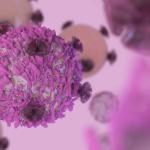It's kind of ironic that tans used to be associated with being poor — with having to work outdoors.
Biomedicine & Biotech
The sequence of an organism's genome, a staple in today's world of scientific experimentation, is as essential to scientific research as beakers.
When people start to use a newly developed scientific technique it is put through the ringer. That is the nature of science.
Whenever something appalling is said or done by Andrew Wakefield and his supporters, which is all too frequently, I am compelled to point out that 1) there is no scientific evidence supporting their far-fetched idea that vaccines cause autism and
If you're a fan of your new, wearable fitness tracker, it must be reassuring to glance down at your wrist and see your heart rate measurement as you start your run. And as the numbers climb, there's gratification knowing that your heart
Vitamin-A deficiency around the world leads to between 250,000 and 500,000 children going blind – every single year. Half of them die within a year of losing their sight. And several other health problems stem from this urgent issue.
When we order food at a restaurant or buy it from a grocery store, we expect that we are getting what is listed on the menu or label. But a growing body of evidence suggests that simply isn't the case.
One final observation on our great post-war successes in controlling malaria by targeting its vector, the Anopheles mosquito.
Immunology studies how we maintain our body’s integrity. When one thinks of immunology, it is the mechanisms of our defense that first come to mind. White blood cells converging on bacteria, antibodies identifying a biological threat.
For athletes and others who exercise, glucose is the key energy source that powers their activity. Since it's what makes them go – and keeps them going – maintaining proper levels are essential to achieving the desired performance.











